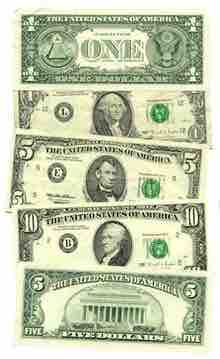The Federal Regulation of Lobbying Act of 1946 was a statute enacted by the United States Congress that was intended to reduce the influence of lobbyists on the government.
There is general agreement that money is a key variable in lobbying . This has been viewed as problematic, because it allows those with the most financial resources to influence government more than those who possess less money. The Federal Regulation of Lobbying Act of 1946 was specifically crafted to deal with this issue. The act defined lobbying as an activity, and thus created the legal conditions for the behavior to be regulated by the government.

Lobbying for Pay
There is general agreement that money is a key variable in lobbying.
The provisions of the act define lobbying in the following manner:
Section 308 states that, "any person who shall engage himself for pay, or for any consideration, for the purpose of attempting to influence the passage or defeat of any legislation by the Congress of the United States shall, before doing anything in furtherance of such object, register with the Clerk of the House of Representatives and the Secretary of the Senate and shall give to those officers in writing and under oath, his name and business address, the name and address of the person by whom he is employed, and in whose interest he appears or works, the duration of such employment, how much he is paid and is to receive, by whom he is paid or is to be paid, how much he is to be paid for expenses, and what expenses are to be included. "
Section 307 further describes what is regulated. "The Provisions of this act apply to any person (except a political committee as defined in the Federal Corrupt Practices Act, and duly organized State or local committees of a political party), who by himself, or through any agent or employee or other persons in any manner whatsoever, directly or indirectly, solicits, collects, or receives money or any other thing of value to be used principally to aid, or which the principal purpose of which person is to aid, in the accomplishment of influencing, directly or indirectly, the passage or defeat of any legislation by the Congress of the United States. "
Lobbyists claimed that the Regulation of Lobbying Act was unconstitutional on the grounds that it was vague and unclear. In a 1954 case (United States v. Harriss), the Supreme Court made its voice heard on the issue. The Court upheld the act's constitutionality, but it also narrowed the scope and application of the act. The Supreme Court ruled that the act applied only to paid lobbyists who directly communicated with members of Congress, and only when that communication regarded pending or proposed federal legislation. This meant that lobbyists who visited with congressional staff members, rather than members of Congress themselves, were not considered lobbyists. In addition, the act only monitored attempts to specifically influence the passage or defeat of legislation in Congress, and thus excluded other congressional activities or communication between officials and lobbyists. Finally, the Court also ruled that the act only applied to individuals who spent at least half of their time lobbying. This set basic occupational limits as to who would be affected by the law.